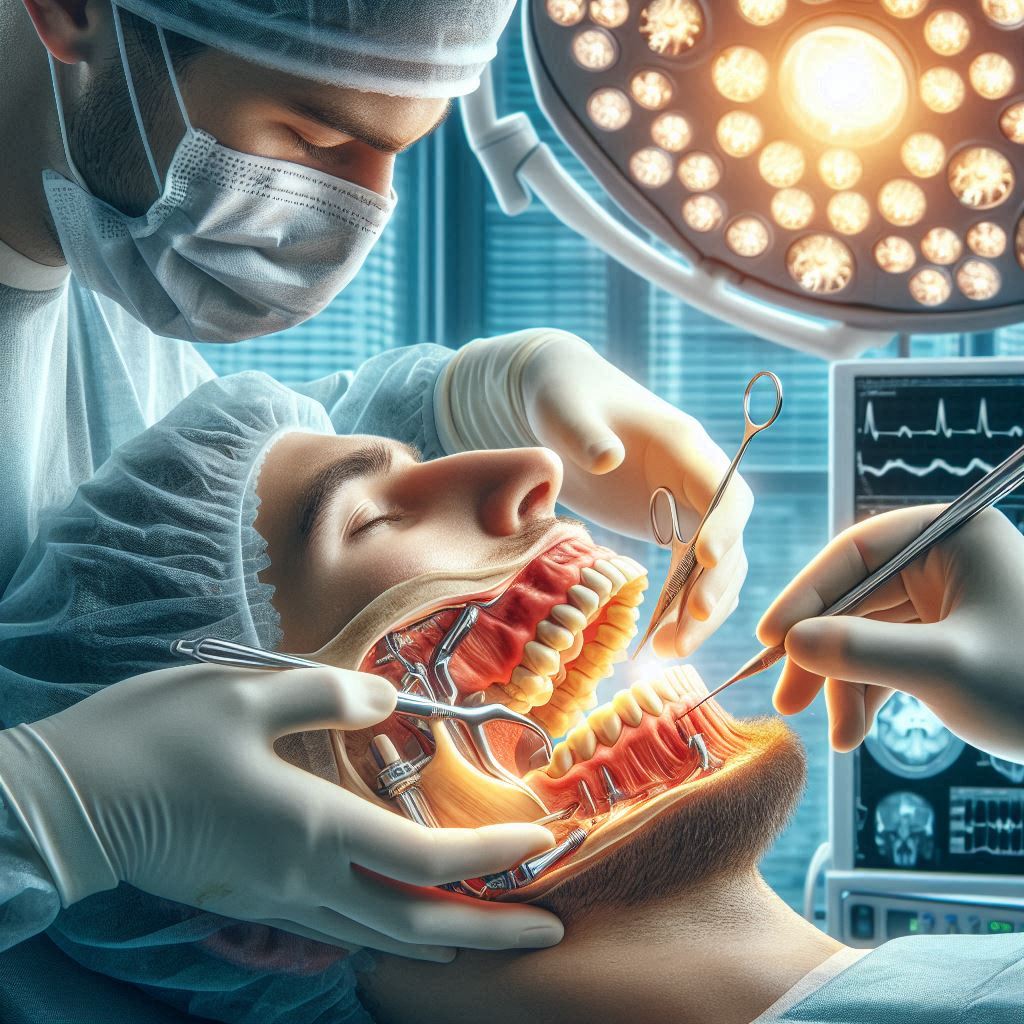Jaw Surgeries

Comprehensive Solutions for Complex Dental Issues
Jaw surgeries, also known as orthognathic surgeries, are essential for correcting structural and functional issues of the jaw. These procedures are performed to improve the alignment of the jaw and teeth, which can significantly impact speech, chewing, and overall oral health.
- Malocclusion: Misalignment of teeth that affects bite and jaw function, causing discomfort or difficulty in eating.
- Facial Asymmetry: Uneven jaw growth leading to cosmetic concerns, often impacting self-esteem.
- Trauma: Injuries to the jaw requiring surgical intervention for restoration and proper alignment.
- Sleep Apnea: Jaw surgery can reposition the jaw to open airways, improving breathing during sleep.


Types of Jaw Surgeries:
- Orthognathic Surgery: Involves repositioning the upper (maxilla) or lower (mandible) jaw to align teeth correctly and improve bite. This is often accompanied by braces to achieve the desired alignment.
- TMJ Surgery: Focuses on the temporomandibular joint to alleviate pain and restore function, usually recommended when non-surgical treatments fail.
- Jaw Reconstruction: Restores bone structure and function following trauma, tumor removal, or congenital defects. This may involve grafting bone from other parts of the body.
Benefits:
- Enhanced chewing and speech capabilities through improved jaw alignment.
- Aesthetically pleasing facial symmetry, contributing to a more attractive appearance.
- Relief from chronic pain and discomfort related to jaw disorders, leading to improved quality of life.
- Increased self-confidence due to improved facial appearance.
Recovery and Aftercare:
- Post-surgery, patients may experience swelling, bruising, and discomfort, which can be managed with prescribed medications.
- A soft-food diet is typically recommended during the initial healing phase, transitioning to a regular diet as healing progresses.
- Follow-up visits are essential to monitor recovery and jaw function. Patients should report any complications, such as increased pain or signs of infection, immediately.
- Physical therapy may be advised to improve jaw mobility and strength, helping to restore normal function more quickly.
Jaw Surgeries Healing Stages
The healing process following jaw surgery involves several stages, primarily focusing on the stabilization of the jawbone and soft tissues. The duration of recovery varies depending on the type of surgery performed, and patients may be advised to follow specific dietary guidelines and lifestyle changes to promote healing.
| Stage | Description of Process | Duration |
|---|---|---|
| Surgical Procedure | The surgeon repositions the jaw and secures it with plates and screws, if necessary. | 3-6 hours |
| Initial Recovery | Patients spend a few hours in recovery, monitored for pain and swelling. | 1-2 days |
| Soft Tissue Healing | Initial healing of soft tissues begins, with swelling peaking within 48 hours. | 1-2 weeks |
| Bone Healing | The jawbone begins to heal and stabilize, requiring a soft diet to avoid strain on the jaw. | 6-12 weeks |
| Full Recovery | Follow-up visits are conducted to assess healing, and full functionality is gradually restored. | 3-6 months |
Dental
Services
Your smile is our priority. We offer personalized, high-quality dental care designed to enhance your oral health and boost your confidence.
Book an Appointment